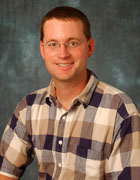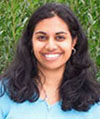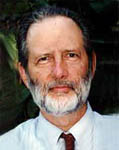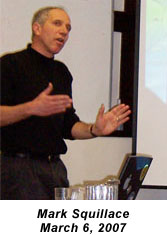Center News
New Center Books
 Creating a Climate for Change: Communicating Climate Change and Facilitating Social Change
Creating a Climate for Change: Communicating Climate Change and Facilitating Social Change
by Susanne C. Moser and Lisa Dilling (Editors)
Description:
The need for effective communication, public outreach, and education to increase support for policy, collective action and behavior change is ever present, and is perhaps most pressing in the context of anthropogenic climate change. This book is the first to take a comprehensive look at communication and social change specifically targeted to climate change. It is a unique collection of ideas examining the challenges associated with communicating climate change in order to facilitate societal response. It offers well-founded, practical suggestions on how to communicate climate change and how to approach related social change more effectively. The contributors of this book come from a diverse range of backgrounds, from government and academia to non-governmental and civic sectors of society. The book is accessibly written, and any specialized terminology is explained. It will be of great interest to academic researchers and professionals in climate change, environmental policy, science communication, psychology, sociology, and geography.
 The Honest Broker: Making Sense of Science in Policy and Politics
The Honest Broker: Making Sense of Science in Policy and Politics
by Roger Pielke, Jr.
Description:
Scientists have a choice concerning what role they should play in political debates and policy formation, particularly in terms of how they present their research. This book is about understanding this choice, what considerations are important to think about when deciding, and the consequences of such choices for the individual scientist and the broader scientific enterprise. Rather than prescribing what course of action each scientist ought to take, the book aims to identify a range of options for individual scientists to consider in making their own judgments about how they would like to position themselves in relation to policy and politics. Using examples from a range of scientific controversies and thought-provoking analogies from other walks of life, The Honest Broker challenges us all - scientists, politicians and citizens - to think carefully about how best science can contribute to policy-making and a healthy democracy.
For more information about these books click here.
 Roger Pielke, Jr. Testifies Before Congress
Roger Pielke, Jr. Testifies Before Congress
Center director Roger Pielke, Jr., testified before the House Committee on Oversight and Government Reform at its hearing on "Allegations of Political Interference with the Work of Government Climate Change Scientists" January 30, 2007. Roger’s main point was that “politics and science cannot in practice be separated. Consequently, policies for the production, promotion, and use of information in decision making should be based on the realities of science in politics, and not on the mistaken impression that they can somehow be kept separate. Efforts to separate them will in most cases only contribute to the pathological politicization of science.” To read his remarks in their entirety click here. For more information visit the hearing website.
 Shali Mohleji Wins Graduate Research Assistantship Award
Shali Mohleji Wins Graduate Research Assistantship Award
Center graduate student Shali Mohleji, whose research focuses on homeland security policy, was awarded a GRA through the highly competitive CIRES Graduate Research Fellowship program. The program was created to promote scholarship and research excellence in students advised by CIRES faculty. Evaluations of the 2007-2008 applications were based on each candidate’s accomplishments, ability to communicate and work independently, letter of recommendation, and the likelihood of future contributions to the environmental sciences. Congrats Shali!
Center at AGU, AMS, AAAS
Center staff members and graduate students gave the following talks at the December 11-15 American Geophysical Union Fall 2006 Meeting in San Francisco:
- Creating Usable Science in the 21st Century: Strategies for More Effectively Connecting Science to Societal Needs, Lisa Dilling and Genevieve Maricle
- How to achieve benefit from mission-oriented research: Lessons from the U.S. Department of Agriculture and the Naval Research Laboratory, Nat Logar
- In Pursuit of Usable Science: Assessing the Impact of Human Dimensions of Global Change Research, Genevieve Maricle
- Supporting the creation of usable science: Progress and Challenges, Lisa Dilling
- Examining the earthquakes damages record: What does the last 100 years of losses mean for natural hazards policy?, Kevin Vranes
- The Limits to Relevance, Marilyn Averill and Adam Briggle
Center staff and students presented the following talks at the January 14-18, 2007 American Meteorological Society’s annual meeting in San Antonio, Texas:
- Shifting Research Priorities: The Role of Human Dimensions of Global Change Research, Genevieve Maricle
- Defining Usable Science, Lisa Dilling and Maria Carmen Lemos
Center staff and students presented the following talks at the February 15 – 19, 2007 AAAS annual meeting in San Francisco:
- The Challenge of Communicating About Climate Change To Support Societal Action, Lisa Dilling
- Shaping Science: How to Craft Research Agendas to Meet Society's Needs, Genevieve Maricle
For more information and to view the abstracts of these talks click here.
 Carl Mitcham Keynote Speaker at Ethics Conference
Carl Mitcham Keynote Speaker at Ethics Conference
Center faculty affiliate Carl Mitcham was a keynote speaker at the February 16 “Policy, Ethics & the Future of Human Intelligence” conference at the National Press Club in Washington, DC.
The Institute on Biotechnology and the Human Future (IBHF) at Chicago-Kent College of Law/Illinois Institute of Technology hosted this conference which brought together some of the key voices in the discussion of critical 21st-century issues.
 Center’s Noontime Seminar Series Continues
Center’s Noontime Seminar Series Continues
The Center’s popular Noontime Seminar series continues this spring with the following schedule of talks:
January 23: Paul Komor, Meeting Colorado's Future Electricity Needs: One Question, Many Answers
January 25: Katinka Waelbers, Philosophy of Science, Technology & Society: Masters program at the University of Twente
February 6: Björn-Ola Linnér, Who gets what, how and when: Historical Responsibility & Emissions Trade in Climate Policy
February 22: Kevin Vranes, What does "success" mean for earthquake mitigation policy?
March 6: Mark Squillace, The Future of Federal Wetlands Regulation
March 13: Doug Kenney and Chris Goemans, Managing Residential Water Demand: Lessons from Aurora, Colorado
March 20: Shali Mohleji, The Challenges Facing Homeland Security S&T
April 3: Nat Logar, Models for societal benefit from federally-funded mission institutions
April 10: Marilyn Averill, The U.S. Supreme Court's recent decision in Massachusetts vs. EPA
April 13: Eva Lövbrand, The politics of expertise in the Kyoto negotiations on land use change and forestry
April 18: Wayne Ambler, Introducing Engineering Undergraduates to STS and Policy Issues: A New Course
May 3: Edward Dunlea, Recent Advances in Ambient Aerosol Research
June (Date TBA): Steve Nerem, Satellite Measurements of Sea Level Change: What do they tell us?
All talks are free, open to the public, and located at the Center (Click here for directions). For more information about these and other Center events click here.

